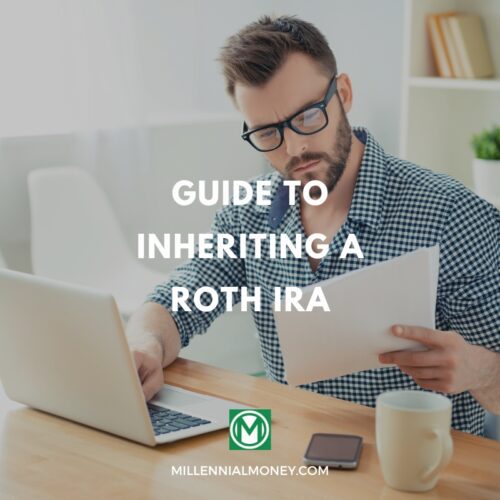High-net-worth individuals (HNWIs) have substantial liquid assets compared to the average American, so they are classified distinctly in the financial world. Depending on where you look, you may also see the abbreviation shortened to HNW.
These individuals typically possess at least $1 million in financial assets that can be easily converted to cash.
Liquid assets include cash, investments such as certificates of deposit, and government bonds but exclude primary residences and possessions like fine art and antiques. HNWIs often rely on the expertise of financial professionals to manage their wealth.
Let’s explore the concept of high-net-worth individuals in more detail and review some strategies for growing your net-worth.
What Is a High-Net-Worth Individual?
In wealth management, “high-net-worth individual” (HNWI) is frequently used to describe individuals with significant financial resources.
These individuals possess a level of wealth that surpasses that of the average person. As such, they have the means to make substantial investments and contribute to the economy in various ways. Let’s delve into the key attributes and criteria that define a high-net-worth individual.
At the core of being classified as a high-net-worth individual is possessing liquid assets exceeding $1 million–making them at least millionaires by most standards.
Liquid assets refer to financial resources that can easily be converted into cash without significant loss in value.
These assets can include cash in bank accounts, investments such as stocks and bonds, and other marketable securities. Having such a substantial amount of liquid assets, HNWIs possess financial flexibility and stability that sets them apart from individuals with more limited means.
Very High-Net-Worth Individuals & Ultra-High-Net-Worth Individuals
A very high-net-worth individual (VHNWI) has liquid assets between $1 and $5 million. An ultra-high-net-worth individual (UHNWI) has even more investable assets––usually upwards of $30 million.
America has the highest concentration of global wealth, but many also live in Asia and Europe. Japan, Germany, and China come in at a close second to the United States.
HNWIs typically work closely with financial advisors and wealth managers with intimate and direct experience with their financial situation.
While liquid assets above $1 million are a general benchmark for high-net-worth individuals, it’s important to note that this figure may vary depending on the context and country. Different regions and institutions may have slightly different criteria for determining an individual’s wealth status.
Financial Needs of HNWIs
Being a high-net-worth individual goes beyond simply possessing significant financial resources. It also entails having a certain level of influence and impact on the economy and society.
HNWIs often play a crucial role in driving economic growth by investing in businesses, supporting startups, and creating job opportunities. Additionally, their philanthropic efforts and contributions to charitable causes can significantly impact various communities and causes.
In this section, we will explore various aspects related to the net wealth of HNWIs, including maintaining and preserving assets, personalized services in investment management, estate planning, and tax planning, as well as the qualification for separately managed investment accounts.
Maintaining and Preserving Assets
Most HNWIs inherit some or all of their wealth, so preservation is key.
For high-net-worth individuals, maintaining and preserving assets is of utmost importance. They have worked hard to accumulate wealth and need strategies to ensure longevity.
Maintaining wealth involves diversifying their investment portfolio, safeguarding against potential risks, and staying up-to-date with stock market trends. HNWIs often seek the guidance of wealth advisors and financial planners to help them make informed decisions about asset allocation, risk management, and wealth preservation strategies.
Personalized Services in Investment Management
High-net-worth individuals benefit from personalized services in investment management. Unlike standard investment portfolios, HNWIs require custom-tailored solutions that align with their unique financial goals, risk appetite, and investment preferences.
Wealth management firms specializing in serving HNWIs offer personalized investment strategies, access to exclusive investment opportunities, and dedicated relationship managers who provide ongoing support and guidance.
Estate Planning and Tax Planning
HNWIs must prioritize estate planning and tax planning to ensure the smooth transition of their wealth to future generations while minimizing tax liabilities. Estate planning involves creating wills, trusts, and other legal structures to protect and distribute assets according to their wishes.
Tax planning strategies aim to legally minimize the amount of taxes owed, taking advantage of tax incentives, deductions, and exemptions. Collaborating with estate planning attorneys and tax advisors is crucial for HNWIs to successfully navigate America’s complex legal and tax landscapes.
Qualification for Separately Managed Investment Accounts
Separately managed investment accounts (SMAs) give HNWIs greater control and customization over their portfolios. SMAs are individually managed investment accounts that allow clients to invest in specific assets, such as stocks, bonds, or real estate.
However, not all HNWIs automatically qualify for SMAs. Depending on the wealth management firm’s requirements, HNWIs may need to meet certain minimum investment thresholds or have a specific net worth to be eligible for these specialized accounts.
Benefits of High-Net-Worth Individuals
High-net-worth individuals (HNWIs) enjoy various benefits due to their substantial wealth. These advantages can range from reduced fees, discounts, and special rates to exclusive access to special events and perks.
Additionally, HNWIs have the ability to invest in hedge funds and private equity, providing them with unique investment opportunities. Let’s explore these benefits in more detail.
Reduced Fees, Discounts, and Special Rates
One of the advantages of being an HNWI is the ability to negotiate reduced fees, secure discounts, and access special rates. Due to their significant assets, HNWIs often qualify for preferential treatment from financial institutions, service providers, and luxury brands. Generally, these services are considered private banking because they’re not available to the general public.
These benefits include lower interest rates on loans, higher compounding interest for certain accounts, discounted insurance premiums, waived transaction fees, and exclusive pricing on high-end products and services.
Financial institutions also offer HNWIs specialized banking services, such as dedicated relationship managers and customized financial solutions. These personalized services aim to provide convenience and cater to the unique needs of wealthy individuals, further enhancing their overall financial experience.
Access to Special Events and Perks
Being an HNWI grants individuals access to exclusive events and perks unavailable to the general public. From invitation-only galas and private concerts to VIP experiences at sporting events and luxury travel opportunities, HNWIs enjoy various unique privileges.
This access extends beyond entertainment and leisure activities. HNWIs often have the opportunity to attend exclusive networking events, conferences, and seminars featuring renowned industry experts and thought leaders.
These gatherings provide valuable networking opportunities and the chance to gain insights into various fields, further enriching their personal and professional lives.
Similarly, high-net-worth clients may be given exclusive access to collectibles and other highly sought-after financial services.
Access to Hedge Funds and Private Equity
HNWIs have the advantage of investing in hedge funds and private equity, which are typically not accessible to the general public.
Hedge funds offer alternative investment strategies to generate high returns while managing risk. HNWIs can diversify their investment portfolios and achieve greater financial growth by investing in hedge funds.
Private equity investments allow HNWIs to invest in privately held companies or participate in buyouts or funding rounds. These investments have the potential for significant returns but often require a higher level of risk tolerance and a longer investment horizon.
How to Calculate Your Net Worth
Financial professionals calculate net worth by inventorying your current assets and liabilities.
- Gather Financial Information: Start by collecting all the relevant financial information that will contribute to calculating your net worth. This includes your assets, liabilities, income, and expenses.
- Value Your Assets: Once you have gathered all the necessary information, it’s time to assign a value to your assets. Consider your cash, investments, real estate, vehicles, and valuables.
- Calculate Your Liabilities: Next, you will determine the total amount of your liabilities. Consider your mortgage, loans, credit card balances, and outstanding bills.
Now that you have the values for your assets and liabilities, you can calculate your net worth using a simple formula:
Net Worth = Total Assets – Total Liabilities
Subtract your total liabilities from your total assets to obtain your net worth.
Calculating your net worth is not a one-time task; it’s an ongoing practice. Regularly monitor and update your net worth to track your financial progress. Consider revisiting this calculation annually or when you experience significant financial changes.
Steps to Become a High-Net-Worth Individual
Growing your net worth to impressive heights is difficult but not impossible. A financial planner can help you develop a strategy that bolsters your net worth in the following ways:
1. Set Clear Financial Goals
The first step towards becoming an HNWI is to set clear financial goals. A clear vision of your financial goals will give you direction and motivation. Ask yourself: What is your definition of financial success?
Do you want to accumulate a certain amount of wealth? Are you aiming for early retirement or financial independence? By defining your goals, you can start working towards them with purpose.
2. Develop a Comprehensive Financial Plan
Once you have set your financial goals, developing a comprehensive financial plan is essential. This plan should include a budget, investment strategies, debt management, and an evaluation of your risk tolerance. A budget will help you track your income and expenses, ensuring that you live within your means and save for the future.
Investment strategies will allow you to grow your wealth over time, while debt management will help you reduce liabilities and increase your net worth. Risk management strategies like insurance protect your assets and provide peace of mind.
3. Increase Your Financial Literacy
To become an HNWI, it is crucial to continuously increase your financial literacy. Educate yourself about investing, tax planning, estate planning, and other areas of personal finance. Stay updated on market trends and economic news.
Attend seminars, workshops, or online courses to expand your knowledge. The more you understand the overarching concepts and strategies, the more informed financial decisions you can make to grow wealth.
4. Diversify Your Investments
Diversification is a key principle of wealth building. To become an HNWI, it is essential to diversify your investments. Instead of putting all your eggs in one basket, spread your investments across various asset classes, such as stocks, bonds, mutual funds, real estate, and alternative investments. You’ll also want to consider lower-risk investments, such as money market accounts and certificates of deposit (CD). An investment adviser can help you make the best choices for your goals and risk tolerance.
This diversification helps mitigate risks and maximizes the potential for returns. Consider consulting with a financial advisor to develop an investment portfolio tailored to your goals and risk tolerance.
5. Build a Strong Network
Networking plays a vital role in becoming an HNWI. Surround yourself with successful and like-minded individuals who can inspire and mentor you. Attend industry events, join professional associations, and engage in networking activities.
By building a strong network, you gain access to valuable opportunities, knowledge, and connections that can propel your financial success.
6. Maintain Discipline and Patience
Becoming an HNWI is not an overnight process. It requires discipline, patience, and a long-term perspective. Stick to your financial plan, avoid impulsive decisions, and focus on your goals.
Understand that wealth accumulation takes time and consistent effort. Maintain a disciplined approach to saving, investing, and managing your finances, and you will gradually see your net worth grow.
Bottom Line
HNWIs are classified as individuals with at least $1 million in liquid financial assets. Within this category, you may also see VHNWI and UHNWI abbreviations for individuals with $5–$30 million in liquid assets.
These individuals possess cash and assets that can be easily converted to cash. While the exact threshold may vary, HNWIs generally enjoy personalized services in investment management, estate planning, and tax planning.
They also qualify for separately managed investment accounts through specialized brokerages. This unique access allows them to receive benefits such as reduced fees, special rates, and access to exclusive events. As HNWIs grow in number worldwide, the financial industry continues to innovate tailored services to meet their unique needs and goals.





No comments yet. Add your own